Dell XPS 13 vs Lenovo IdeaPad 3: two top laptops go head to head
The best premium laptop up against the best budget laptop


Get all the latest news, reviews, deals and buying guides on gorgeous tech, home and active products from the T3 experts
You are now subscribed
Your newsletter sign-up was successful
Finding the best laptop for you isn't always the easiest task, and with that in mind we like to help you make the most informed decision possible – and that sometimes means comparing one laptop directly against another in all the key categories that matter.
In this case we're looking at the Dell XPS 13 versus the Lenovo IdeaPad 3, two very different types of laptop in a lot of ways, but also two laptops that are likely to be near the top of your shortlist if you're shopping for a new portable computer at the moment.
- These are the best laptops money can buy
- All the best Chromebooks in one place
While the Dell XPS 13 is up at the premium end of the market, and the Lenovo IdeaPad 3 is more of a budget choice, they both have a lot going for them and have proved very popular with discerning buyers – which is why we're putting them head to head here.
Whether you want to know about the size of these laptops, or the sort of software they're running, or how good the respective screens are, we've got you covered. Read on for the full lowdown on how the Dell XPS 13 and the Lenovo IdeaPad 3 compare to each other.
Dell XPS 13 vs Lenovo IdeaPad 3: design and screen
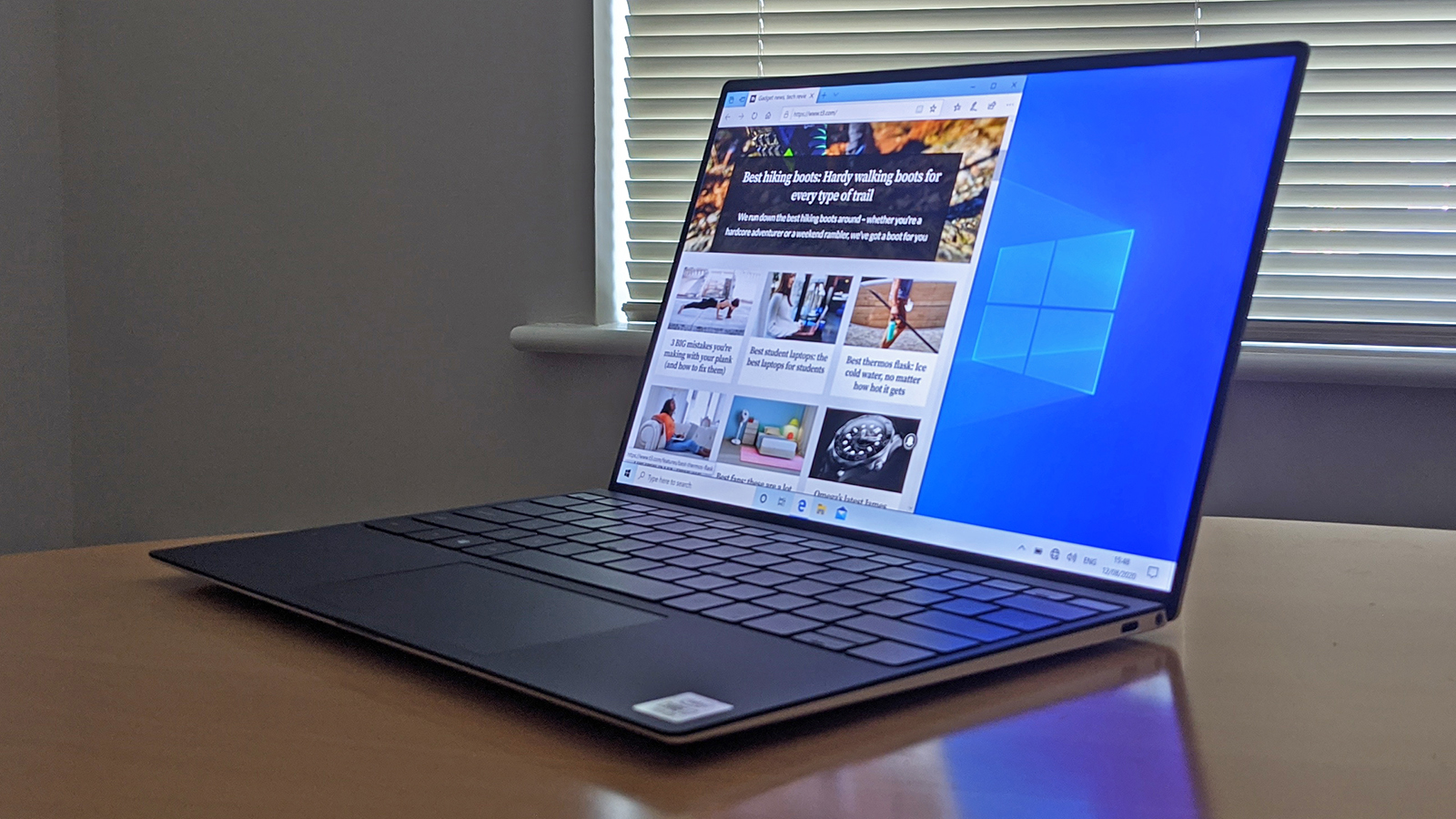
The Dell XPS 13.
While there are lots of differences between the Dell XPS 13 and the Lenovo IdeaPad 3, the displays are actually quite similar in terms of the size, corner to corner: as the names of these laptops tell you, the Dell XPS 13 has a 13.3-inch screen (with a 1920 x 1080 pixel or 3840 x 2160 pixel resolution), while the Lenovo IdeaPad 3 has a 14-inch screen (with a 1366 x 768 pixel or 1920 x 1080 pixel resolution).
As you would expect, the Dell XPS 13 is a compact, premium-looking laptop: it's a pleasure to look at no matter which screen configuration you go for (we also like the 16:10 aspect ratio, which is a little better for websites and documents). The display bezels are nice and thin, and the chassis is finished with carbon fibre – it feels great whether you're opening it up or typing away on the keyboard. Black and white are your exterior colour choices.
In terms of dimensions, the Dell XPS 13 measures 296 mm x 199 mm x 14.8 mm (11.7 inches x 7.8 inches x 0.6 inches), so it's perfect for carrying around the house, taking to work, or using in a lecture theatre. When it comes to ports, you've got a microSD card reader, a 3.5 mm headphone jack, and two Thunderbolt 3/USB-C ports. That's a decent selection on a laptop this size.
Get all the latest news, reviews, deals and buying guides on gorgeous tech, home and active products from the T3 experts
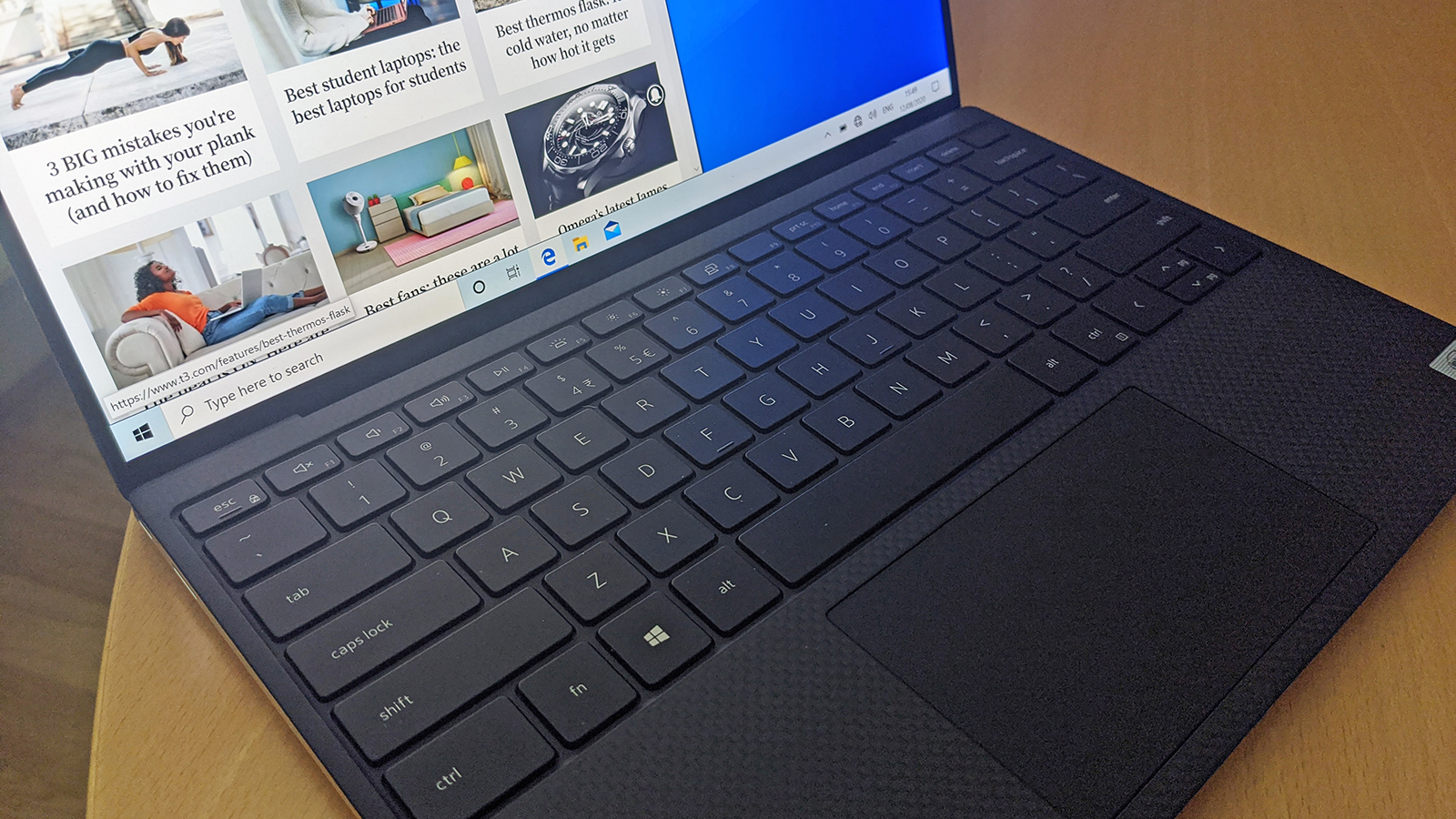
The Dell XPS 13.
Speaking of size, the Lenovo IdeaPad 3 is a little bigger – it measures 327.1 mm x 241 mm x 19.99 mm (12.9 inches x 9.5 inches x 0.8 inches), but it's still compact enough that you don't have to worry about it weighing you down all day. There are more ports than on the Dell XPS 13: a 3.5 mm headphone jack, an SD card reader, an HDMI out port, and three USB-A ports for your various peripherals.
Unlike the Dell XPS 13, this is a laptop with a 16:9 aspect ratio display, making it more suitable for watching movies and YouTube clips. The display bezels are thicker than they are on the Dell, and it's not quite as impressive in terms of its aesthetics, but this is still a laptop that's well put together from a design perspective. The Lenovo laptop is available in three colours too: grey, blue and red.
You would have to say the Dell XPS 13 is a better-looking laptop than the Lenovo IdeaPad 3, and the one that gives you a more premium feel while you're using it, but the Lenovo is by no means an ugly portable computer at all – it still has enough style of its own, and of course it's going to cost you a lot less money to obtain.
- We've got the best cheap laptops for you
Dell XPS 13 vs Lenovo IdeaPad 3: specs and performance
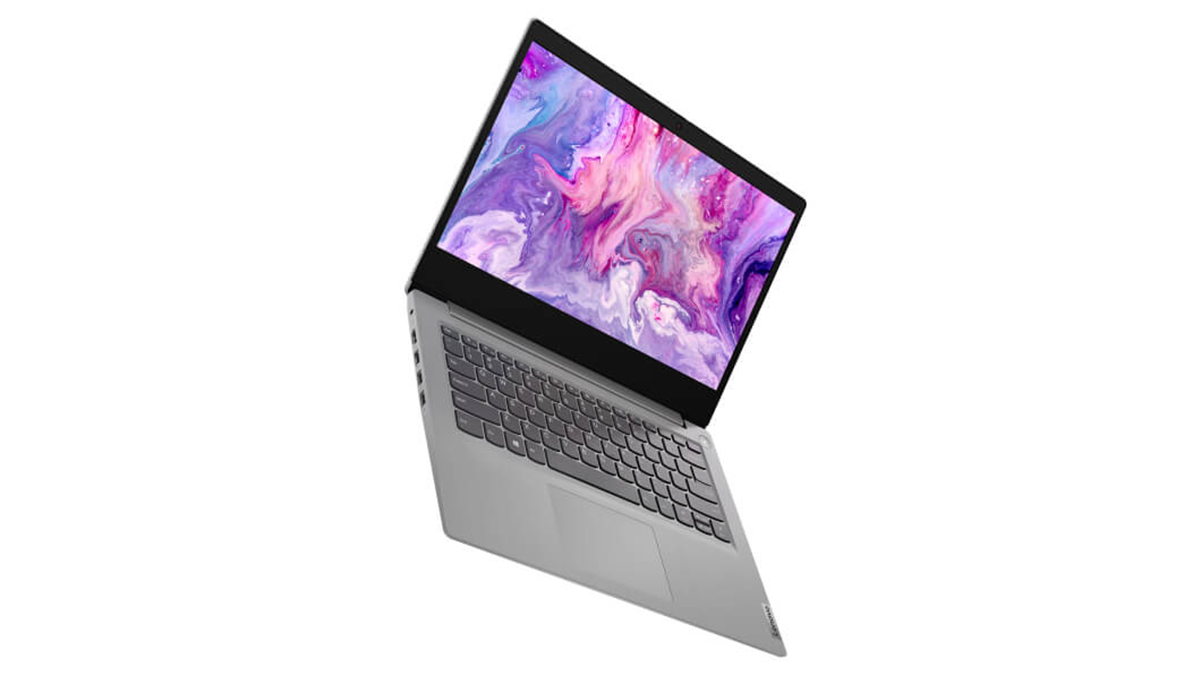
The Lenovo IdeaPad 3.
As is usually the case with modern laptops, various configurations of both the Dell XPS 13 and the Lenovo IdeaPad 3 are available, and those configurations will continue to change and be updated over time. Be sure to check out all the options currently on sale in each series (and in your travels across the web you might also find references to or deals on models from previous editions of these laptops too).
Starting with the Dell XPS 13, at the time of writing you can configure the laptop with up to an 11th-gen Intel i7-1185G7 processor, up to 32GB of RAM, and up to 2TB in SSD storage. The latest models come with integrated Intel Iris Xe graphics too. Unless you're into heavy video editing or running the most demanding games on the market, then the laptop will be able to handle everything you throw at it and then some.
Battery life tops out at a little over 14 hours if you're just streaming video, according to Dell, though it really depends on which configuration you're going to go for, what you're going to do with it, how high you like the screen brightness setting, and so on. There are stereo 2.5W speakers on board as well.
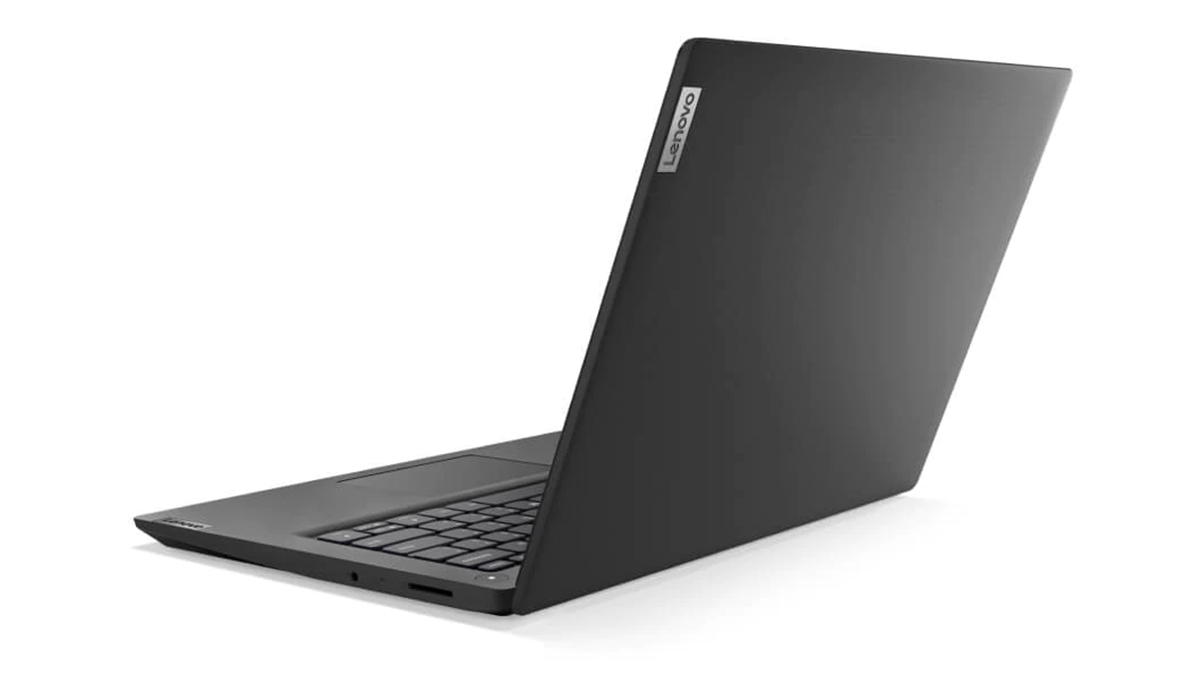
The Lenovo IdeaPad 3.
Moving on to the IdeaPad 3 from Lenovo, here the specs top out at an AMD Ryzen 7 3700U processor, up to 8GB of RAM, and up to 1TB of storage (if you go for a HDD drive – SSD storage maxes out at 512GB). There's integrated Radeon graphics as well. In terms of power, this is more suited to everyday use and tasks.
You get stereo 1.5W speakers on the Lenovo IdeaPad 3, and battery life is rated at up to 6 hours if you're careful with it – this isn't a laptop that's going to run and run for you. Think a quick trip to the coffee shop rather than an entire day away from a mains power supply, though to be fair you can usually plug in at most places nowadays, unless you're working in the middle of a field.
There's no doubt that the Dell XPS 13 wins in terms of performance and battery life – that's why it costs so much more. However, the Dell isn't exactly a gaming juggernaut, so true power users might need something more. At the other end of the scale, the Lenovo IdeaPad 13 holds its own, and will very capably take care of day-to-day jobs like sending emails, streaming video, and browsing the web.
- Check out the best lightweight laptops
Dell XPS 13 vs Lenovo IdeaPad 3: price and verdict
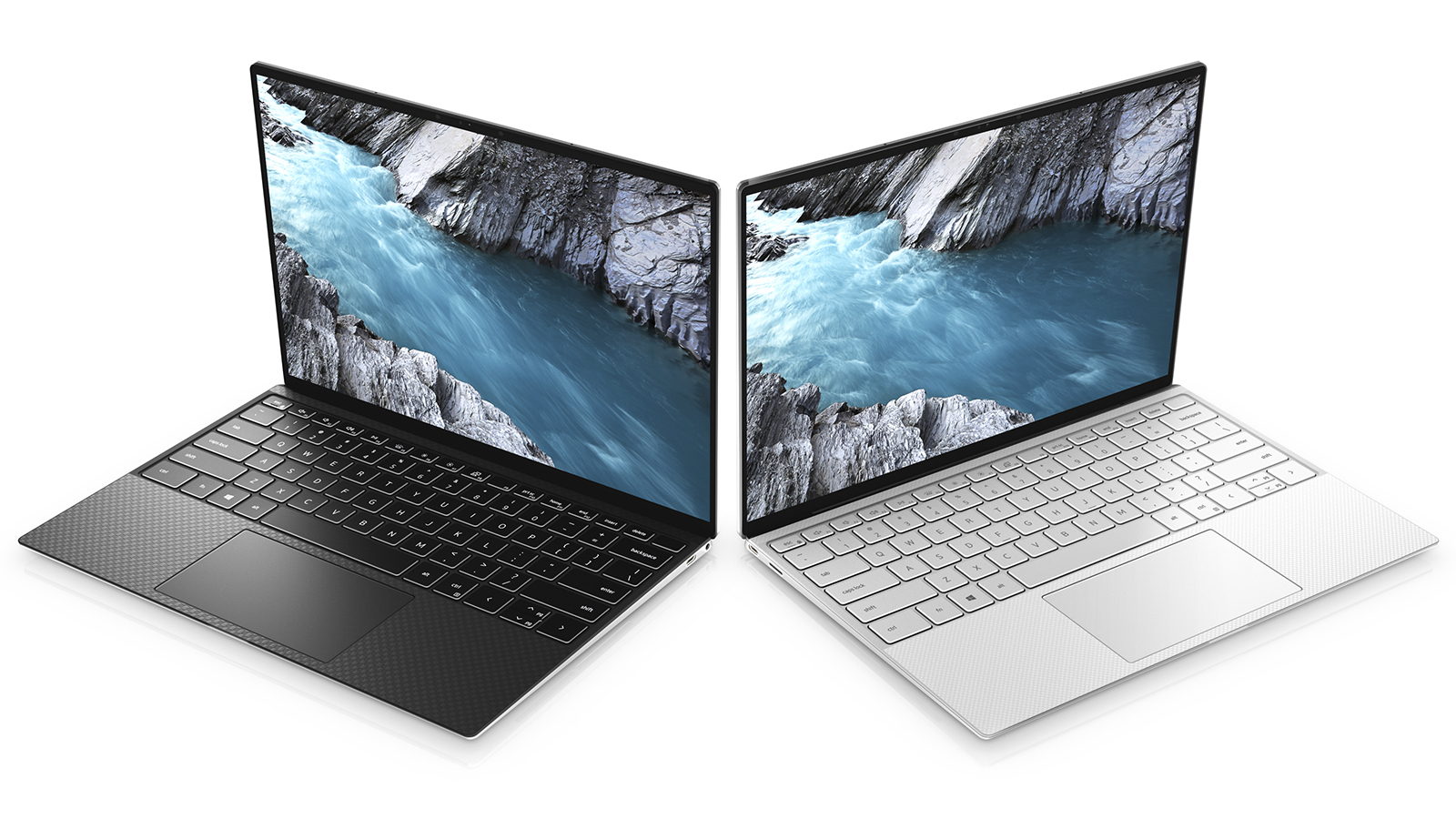
The Dell XPS 13.
When it comes to weighing the Dell XPS 13 up against the Lenovo IdeaPad 3, you can see from everything we've mentioned above that these are undoubtedly two of the best laptops on the market at the moment – they're just aimed at buyers with completely different budgets, and that has a knock on effect on every other aspect of these excellent portable computers.
Where they're most alike is in their sizes, with the 13.4-inch and 14-inch screens: both these laptops are designed to be taken anywhere you like, whether you're trying to catch up with some work on the train or watch some movies in the back garden. You shouldn't have any trouble fitting either the Dell XPS 13 or the Lenovo IdeaPad 3 in a bag.
And to a large extent you're buying these laptops for the same sorts of tasks – productivity apps, web browsing, emailing, watching movies and shows, and so on. The Dell is available in a much more powerful configuration – so it will be faster, and better at handling a whole load of webpages or a whole load of images at once – but with the integrated graphics you're not going to be able to do any top-tier gaming on it.
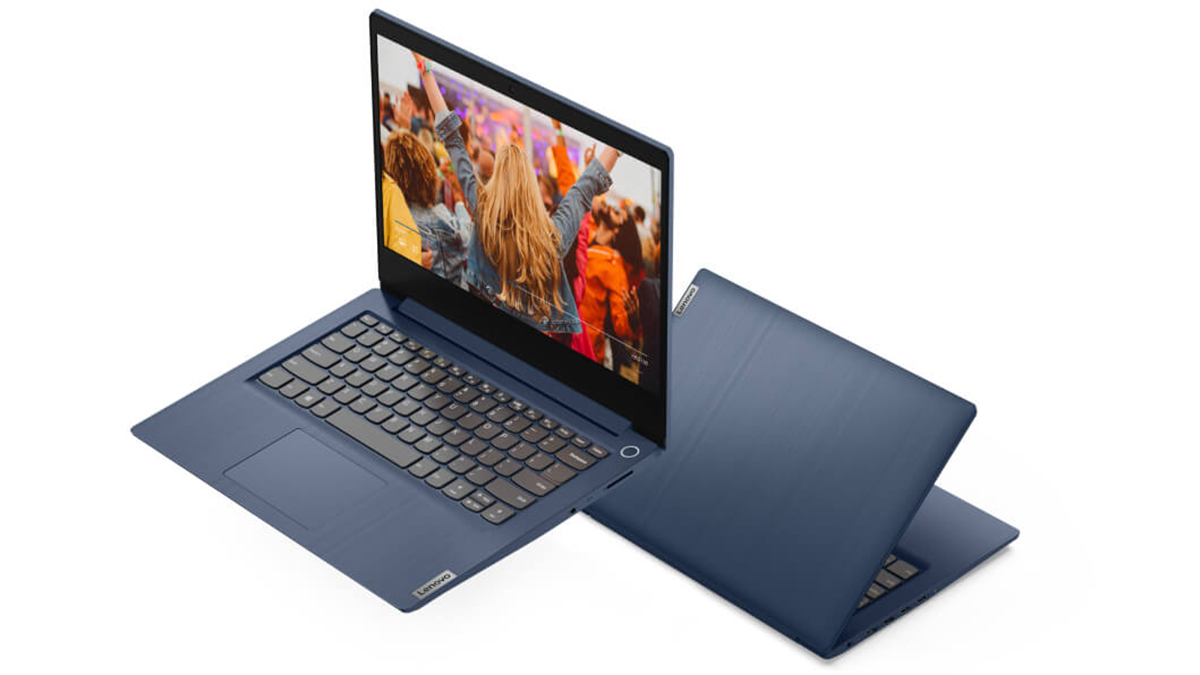
The Lenovo IdeaPad 3.
Pay extra money for the Dell XPS 13 and you'll be getting a laptop that's more capable of handling a lot of different jobs at once, and getting through them more quickly. It's also a much more premium device in terms of its aesthetics, what with that carbon fibre finish and those very thin display bezels. The Lenovo IdeaPad 3 isn't a bad-looking laptop, but you can tell from a quick glance that it comes from the more budget end of the spectrum.
Both these laptops come running Windows 10 as well of course, so in terms of operating system capabilities they're on a par – there's nothing to choose between them when it comes to the software that comes supplied on board (and we happen to think that Windows 10 is getting better all the time as well).
Either of these laptops would be a great pick and we're happy to recommend them both. Choosing between them really depends how much you want to spend and how powerful you need your laptop to be – think about how you'll be using the portable computer from day to day, and that should help you figure out which one is right for you.
- We've listed the best student laptops

Dave has over 20 years' experience in the tech journalism industry, covering hardware and software across mobile, computing, smart home, home entertainment, wearables, gaming and the web – you can find his writing online, in print, and even in the occasional scientific paper, across major tech titles like T3, TechRadar, Gizmodo and Wired. Outside of work, he enjoys long walks in the countryside, skiing down mountains, watching football matches (as long as his team is winning) and keeping up with the latest movies.